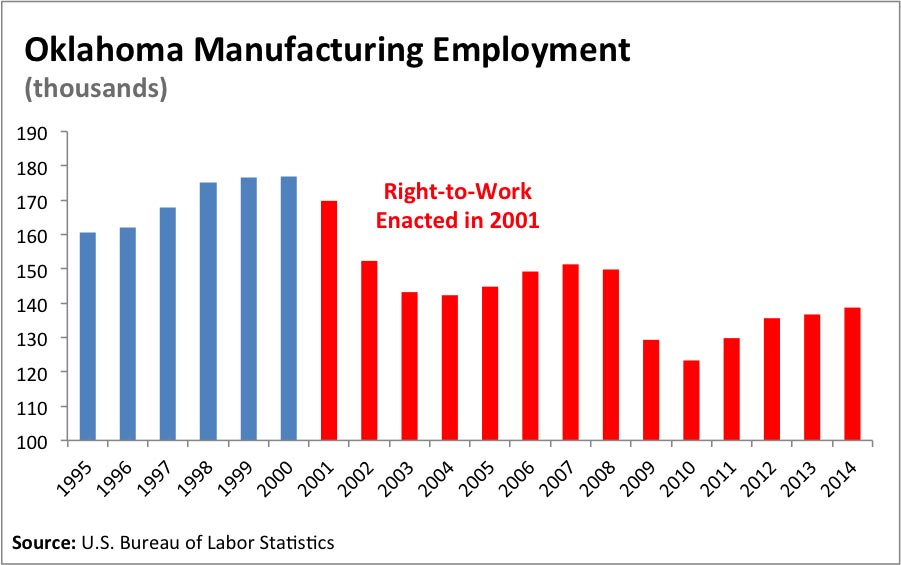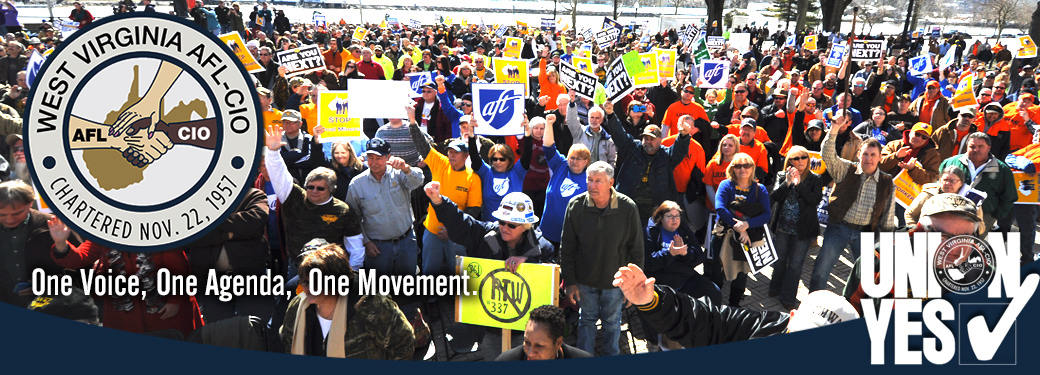 CHARLESTON -- Workers from Oklahoma and Virginia visited Charleston today to talk about how so-called “Right to Work” laws hurt economies, lower wages, impair worker safety and eliminate jobs.
CHARLESTON -- Workers from Oklahoma and Virginia visited Charleston today to talk about how so-called “Right to Work” laws hurt economies, lower wages, impair worker safety and eliminate jobs.
“We’ve presented countless facts and figures which show that a Right to Work law does nothing to help West Virginia’s economy, and instead would be harmful to West Virginia working families, but the rhetoric from the other side has been strong,” West Virginia AFL-CIO President Kenny Perdue said. “We thought it was time West Virginians hear from working people who have experienced the damage Right to Work causes.”
Jesse Isbell of Oklahoma City lost his job of 36 years with Bridgestone Tire Plant, five years after the state of Oklahoma passed a Right to Work law.
“In my case, and in the case of my 1,400 co-workers, the law did not serve as advertised,” Isbell said. “The company made the decision to outsource our jobs even though proponents of the Right to Work legislation claimed it would prevent such departures and even attract new businesses.
“There is absolutely no evidence that Right to Work has benefitted Oklahoma’s economy in any way – the truth is it has driven down wages.”
Since Oklahoma passed the law in 2001, the number of new companies relocating into the state has decreased by one-third and the number of manufacturing jobs in the state has fallen concurrently by one-third, according to the U.S. Bureau of Labor Statistics.
Ted Boettner, Executive Director of the West Virginia Center on Budget & Policy, provided a chart showing how Oklahoma’s manufacturing employment has dropped since 2001 (see attached).
“A 2015 academic study that examined the effects of “Right-to-Work” on Oklahoma’s economy found that it reduced private-sector unionization and had no impact on employment Oklahoma,” Boettner said.
Steve Meador of Roanoke, Va., a UFCW Local 400 member and representative, worked at Kroger for 28 years (and his wife and son both work at Kroger).
“I’m here all the way from Roanoke to bring a warning: Right To Work is wrong for West Virginia,” Meador said.
He cited the example of woman he knows who works at a West Virginia Kroger, but makes $2 an hour more than someone holding the same Kroger position in Virginia.
“My wife pays approximately five times the amount she would pay for her healthcare benefits at Kroger than she would if she worked here in West Virginia,” he said. “Under right to work, you are paid less, your healthcare benefits cost five times as much, and you can’t earn as much vacation.”
President Perdue said he hopes legislators take note of these experiences, and examine the facts surrounding Right to Work. “This is being pushed by out-of-state interests that have a complete disregard for our local economy, our rights, and the health and safety of the average West Virginian,” he said.
“Proponents of Right to Work falsely claim that workers can currently be forced to join a union. That’s false -- federal law doesn’t allow it,” Perdue added. “In reality, so-called Right to Work laws make the workplace less safe, and restrict the choices available to businesses, inserting government interference in voluntary negotiations between private parties.
“This is not about job creation. It’s about attacking unions.”
